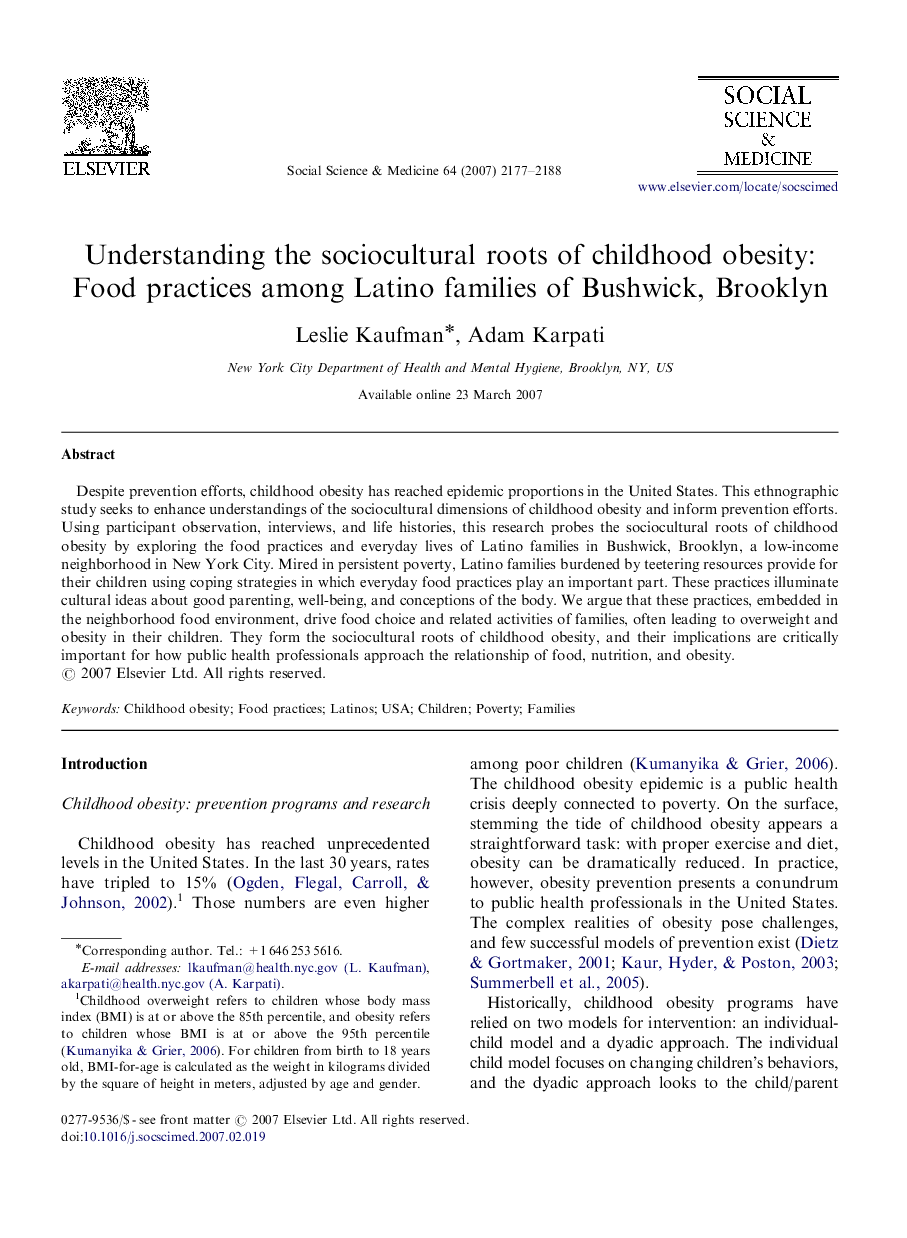| Article ID | Journal | Published Year | Pages | File Type |
|---|---|---|---|---|
| 10472202 | Social Science & Medicine | 2007 | 12 Pages |
Abstract
Despite prevention efforts, childhood obesity has reached epidemic proportions in the United States. This ethnographic study seeks to enhance understandings of the sociocultural dimensions of childhood obesity and inform prevention efforts. Using participant observation, interviews, and life histories, this research probes the sociocultural roots of childhood obesity by exploring the food practices and everyday lives of Latino families in Bushwick, Brooklyn, a low-income neighborhood in New York City. Mired in persistent poverty, Latino families burdened by teetering resources provide for their children using coping strategies in which everyday food practices play an important part. These practices illuminate cultural ideas about good parenting, well-being, and conceptions of the body. We argue that these practices, embedded in the neighborhood food environment, drive food choice and related activities of families, often leading to overweight and obesity in their children. They form the sociocultural roots of childhood obesity, and their implications are critically important for how public health professionals approach the relationship of food, nutrition, and obesity.
Related Topics
Health Sciences
Medicine and Dentistry
Public Health and Health Policy
Authors
Leslie Kaufman, Adam Karpati,
